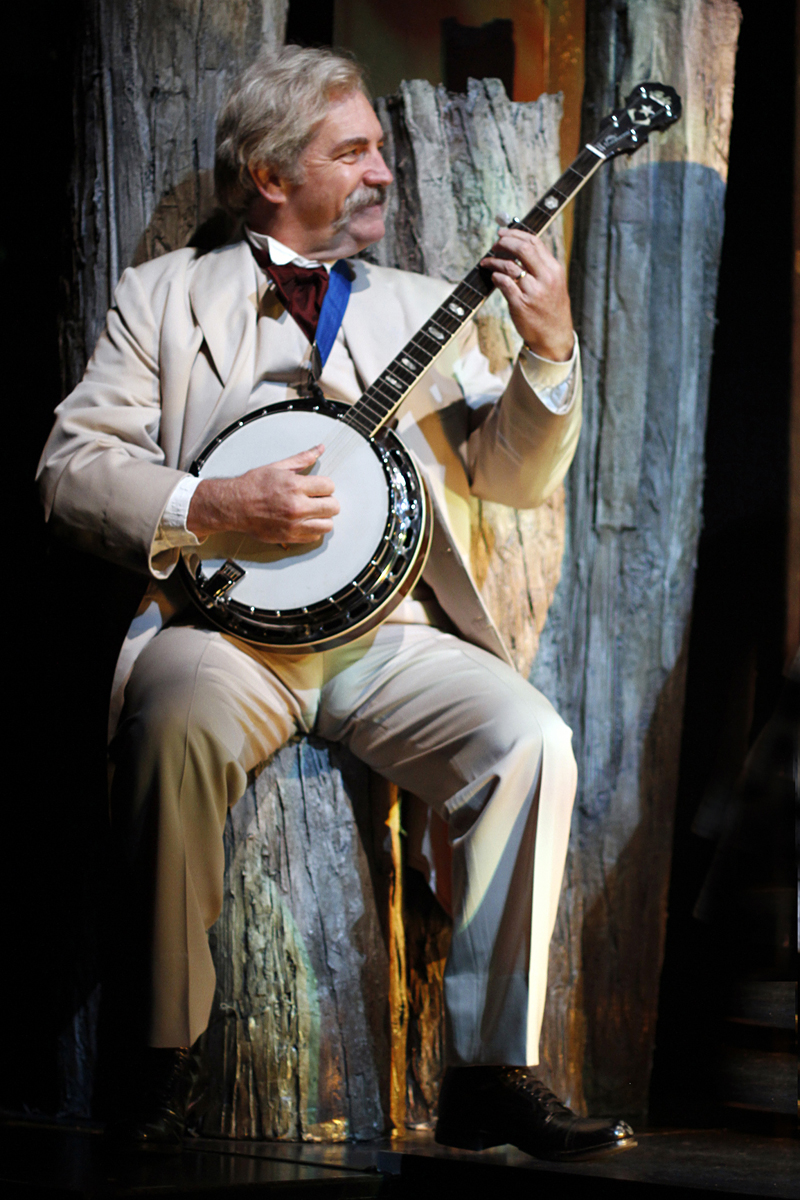Some classics can take decades to establish their reputations. Roger Miller’s adaptation of Mark Twain’s Huckleberry Finn was a Broadway hit in the ’80s, and I predict it’s headed to the pantheon of beloved American musicals.
Director Steve Tomkins has taken a largely unseasoned cast, trained them well, and let them rip. Some of the performers are surefooted and ready for professional gigs, others hit a bum note here or there, but it’s all part of a team effort; the sense of ensemble is both palpable and infectious. It’s not slickness that sells these songs, it’s heart, and this cast has that by the truckload.
William Hauptman’s economical book keeps Twain’s story zipping along at a pace J.K. Rowling would envy, which puts the focus squarely on Miller’s mastery of American musical styles. The score, rendered expertly by Tim Symons, includes country ballads, spirituals, bluegrass sing-alongs, Broadway showstoppers, and a pair of anthems. Miller’s Tony Award–winning numbers are simple and tuneful, and they’re also sturdy. If as Huck Randy Scholz occasionally tilts toward an American Idol-ish sales approach, hitting notes not required by the score—well, fine. (It’s a marked contrast to his ensemble singing and aw-shucks acting.) As Jim, Rodney Hicks has a voice that could fill a cathedral. “Free at Last” is one of the great show tunes of the past 30 years, and for Hicks it’s the perfect vehicle—crisp and gorgeous even in its soft early moments. Likewise, David Anthony Lewis makes a loopy and wonderful Pap, and John David Scott puts just the right spin of nimble physicality on his role as Tom Sawyer.
Scott Fyfe’s set work is both original and seamless, and Melanie Taylor Burgess’ costumes are a sight to behold, from the ragtag to the perfectly prim. My only complaint, especially compared to the New York version I saw nearly three decades ago, is Daniel Cruz’s too-broad choreography— especially for the slaves who shove their shackles in our faces. Their dance moves are more Lion King than antebellum.
Big River will always be revived because Twain’s source tale is so powerful (and again timely in this election season). Huck grows into a man because he comes to understand—despite his segregated upbringing—that the similarities among Americans are far greater than our differences.









